If you Google ‘Kenya’, you will probably find common queries such as ‘is Kenya safe?’, ‘is Kenya dangerous?’, ‘Kenya travel safety’ or similar variations appearing as popular search results.
Search for the country’s capital Nairobi and the results are similar or even worse. The commonly used nickname ‘Nairobbery’ hardly helps the city’s image.
Unfortunately, there are many articles out there that focus too much on the negatives. Some articles you read will put you off completely.
African countries are often featured in the media for all the wrong reasons, which lead people to have a false (or at least a skewed) impression of the continent before they get to experience all the wonders it has to offer.
It’s no wonder that many people have a negative image of Africa.
It is true that there has been areas of conflict, high crime rate, political instability and terrorism. However, it’s a vast continent and the majority of places are stable and safe.
I want this article to provide a true-to-life, balanced picture of what it’s like to visit the beautiful country of Kenya.
In 2019, Kenya welcomed over 2 million foreign visitors, with an increase of 3.9% on 2018. This comes despite the DusitD2 hotel attack in January 2019, various terror threats and global geopolitics.
While tourism will unfortunately be affected in 2020 and possibly for longer due to COVID19, this will be a global effect, rather than anything specific to Kenya.
YES! Kenya is perfectly safe for families. But there's a few things you should be aware of to make your trip more enjoyable.
This guide will provide you with everything you need to know, from planning your trip to travelling around the beautiful country of Kenya. It’s also worth noting that many tips I will write about can (and should) also be applied to travel wherever you plan to go in the world.

View Post by Category
To make this post easier to follow, I have broken things down into broad categories. If you are looking for something specific, you can jump straight to that section.
What’s it Really Like?
Well, it would be naive not to look at the safety issues and take certain precautions.
It is true that thefts, pick-pocketing and bribery are common throughout Kenya, especially in larger towns or cities. However, it is important to keep this in perspective.
Like most places in the world, there are areas that are relatively safe and others that would be best avoided. Equally, there are some places that become more unsafe at night but are perfectly safe during the day.
Whilst travellers could become a target for smaller crimes (pick pocketing, for example), thankfully, more violent and serious crimes against travellers are less common.
You should be pleased to learn that there are simple precautions that will help to reduce chances of being a victim of even the smaller crimes. Most of the time, people are just not aware. There are two things that will help you become less of a target (and these could also apply virtually anywhere you travel to):
- Situational awareness
- Minor adjustments to your day-to-day behaviour.
We will cover the right precautions to take in each section. However, consider this as one example. If you drive around town with your windows open and your wallet, expensive watch, mobile phone or hand bag within easy reach, chances are it will be grabbed at some point. A simple precaution to avoid this is to keep the window up or your valuables out of sight and reach. Many smaller crimes are opportunistic; an open window or wallet hanging from your back pocket is an open invitation and an opportunity that is too easy to pass up, given the hardship many local people in Africa face.
However, to provide some level of perspective and reassurance my wife has lived in Nairobi all her life and has never been subject to a mugging. However, on her first trip to South Africa to visit her brother, she ran into a situation that involved them being threatened at knife-point. Thankfully it turned out OK.
I have also spent a good deal of time in Kenya and have never felt threatened or concerned for my safety.

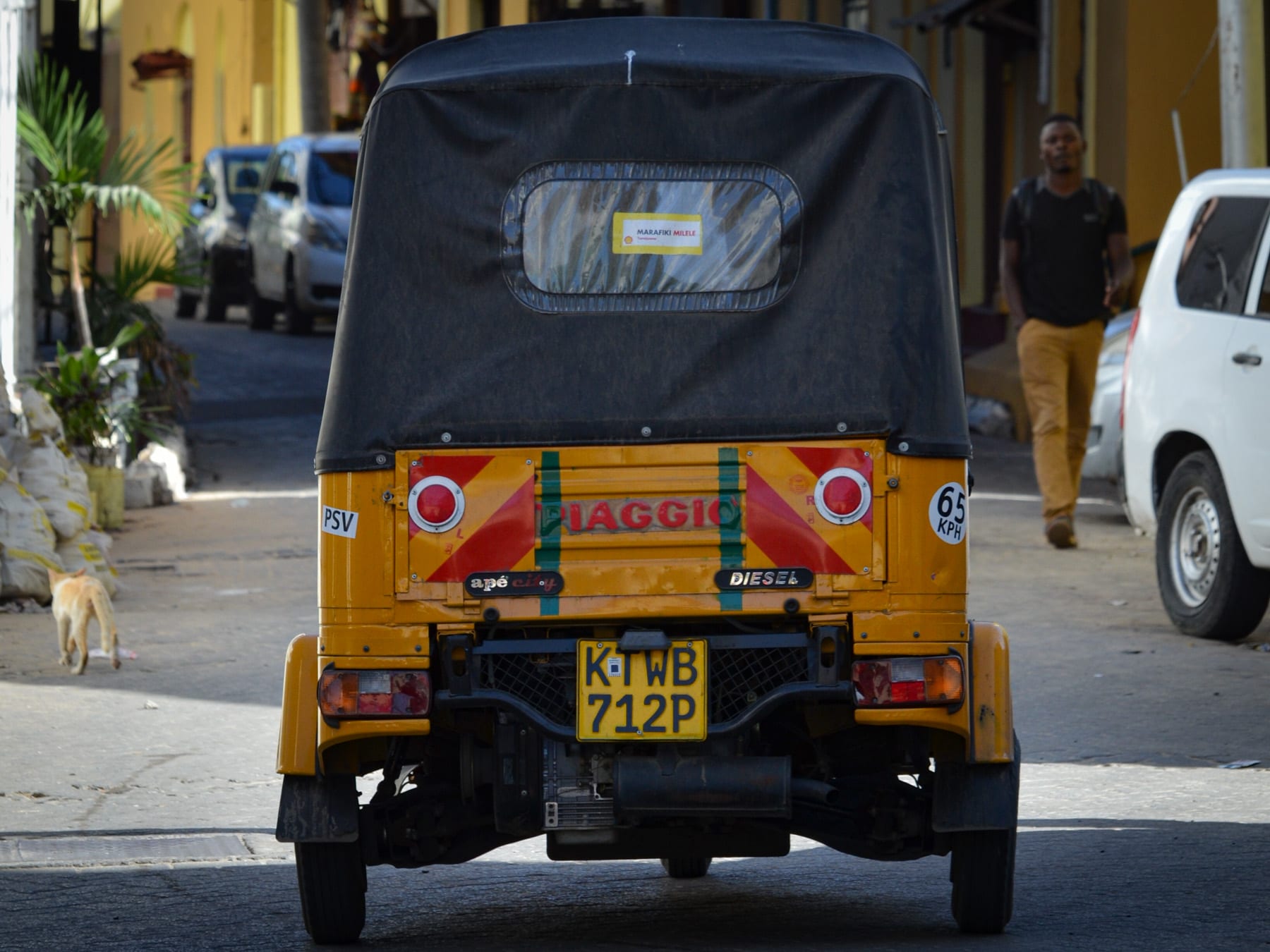
Kenya is not as bad as you have been led to believe. Like most places in the world, there are safe and unsafe areas. Remaining vigilant and taking precautions will help you stay safe.
Things to do Before you Travel
There’s a few things I would recommend that you do before your trip. Again, much of this should apply to whichever country you travel to but it’s worth ensuring you have these things covered, to ensure you are prepared and avoid any situations that could be easily prevented.
We will cover some of these in more detail but here’s a quick checklist of the key things to do prior to your trip.
- Check official websites such as the FCO (UK) or Department of State (US) for the latest travel advisory notifications before you travel. These websites are updated frequently as situations on the ground may change. As such, they should be considered trusted sources for your planning.
- Research the general area and hotel where you are planning to stay you are staying and the local area.
- Check if you require a visa here. If you are eligible, I recommend applying for your visa using the eVisa system. Currently, visitors from most countries, including the United Kingdom and United States can use this system.
- Make copies of your passport. Keep copies with you on a USB drive or as a print out and store them separately from your original passports and travel documents (but not in any checked baggage). It is also sensible to leave a copy with a trusted relative or friend in your home country.
- Make sure you have adequate insurance for your trip. This should include any ‘high risk’ activities that you plan on doing. Keep the details with you and leave a copy with a trusted relative or friend in case of emergencies.
- Avoid travelling with expensive items that you don’t need. Generally, it’s best to leave your expensive watch or jewellery safely at home as walking around with your most expensive jewellery would not be a sensible decision. But everyday jewellery is absolutely fine. Mobile phones, cameras and laptops may be essential but make sure you keep a close eye on them and keep them close to you at all times.

Research and properly prepare for your trip, to avoid any preventable situations.
Airport Arrivals and Customs
Most people will arrive in Kenya through Jomo Kenyatta International Airport in Nairobi or Moi International Airport in Mombasa, which also receives daily direct flights from some European locations. From here, you may connect or transfer to other locations or stay locally.
Wilson Airport in Nairobi handles onward travel to popular tourist and safari destinations such Maasai Mara, Mombasa, Amboseli, Lamu, Kilimanjaro Diani, Lokichogio and Nanyuki.
As everyone’s travel plans and itinerary will be different, the guidance I’ve written here is intended to give you some general guidelines for a safe arrival.
- When arriving inside the terminal, you will need to present your passport and visa. You can purchase a visa on arrival but I generally try to avoid doing this as it’s much simpler to have everything ready. To buy a visa on arrival you will have fill out a form and have the correct amount in cash. If you forget to complete the form, expect to be sent to the back of the line!
- Before passing through customs, make sure you are clear on what you can bring into Kenya and any limits that apply. You will sometimes need to complete a form such as this one (but not always!).
- Bag searches are common when passing through customs.
- Keep a close eye when placing valuables for electronic scanning. Check you have everything once you have passed through the scanners.
- If your luggage is subject to inspection, politely comply but keep a close watch when the bag is being searched. If you are confident you have not violated any restrictions and run into any issues, politely stand firm and ask them to explain what restriction has been violated (note that becoming rude or aggressive, especially with officials will not get you far in Kenya!)
- If you need to pay any duty, always ask for a receipt. Be cautious if the procedure seems unofficial and ask to speak to the person in charge.
- You should note that plastic bags are banned in Kenya and there are also increasing restrictions on single-use plastics. Do not pack anything in plastic bags and consider this when purchasing items from duty free before arrival in Kenya.


It’s best to have your passport and visa ready in advance. Images copyright Ayaan Chitty.
Transfers
If you have booked through a travel or tour company, it is likely that your transfers and transportation has been organised as part of this trip. This is the first thing you should check, to avoid any unexpected issues when you arrive. Make sure you know what will happen when you arrive and keep any contact and your itinerary details close to hand.
If you have arranged the trip yourself or do not have transfers included in your trip, here are a few tips.
Usually transport can be arranged through your hotel or tour company. When you have arranged your transport, find out if there are specific pick up instructions and local numbers to call.
- Where possible, arrange transport in advance for when you arrive. You can usually do this via your travel company or hotel, even if it was not included in the package. It makes it much easier to know you have somebody waiting, rather than trying to find a taxi, getting hassled by local touts or trying to connect to Uber if your phone doesn’t work for any reason.
- For prearranged transportation, your tour driver will usually be waiting with a name board outside the arrival area. Check the specific details for your chosen transport company prior to arrival.
- Take a contact number for your chosen taxi / transfer service.
- Nairobi uses Uber, and we have found this a good option. Just bear in mind that a small car can be VERY small – a 4 seater car may have 4 very tight seats but no space for your luggage (I speak from experience!)
- Avoid offers for ‘unofficial’ taxi services upon arrival. Always use a pre-booked taxi, Uber or speak to an airport official to find a legitimate taxi service.
- According to the Overseas Security Advisory Council, the U.S. Embassy does not allow their employees to use Uber but instead, they recommend Express Impress (+254 729 872 647 or +254 712 794 418) and Jim Cab (+254 722 711 001).
- It helps to look confident to avoid being approached by touts. Act like you know the place and avoid displaying a clueless look on your face! Also avoid giving out your name and letting them convince you they are there to collect you; if they are your driver, they will know your name!
- Avoid arriving at night if you can. It’s not always feasible and you shouldn’t worry about arriving at night. It’s just easier and generally safer for driving to some locations in Nairobi during the day. If you are unable to avoid arriving at night, then try to make sure you have prebooked transport and accommodation for your arrival. Also have contact information for your driver and the hotel to hand.

It is advisable to prearrange transfers if possible. Otherwise, always use official, licensed taxis or Uber. Image by wollwerth, 123rf.com.
At your Hotel
Most hotels in Kenya will offer a good level of everyday security and have guards (askari) at the entrances . This is helpful in preventing minor crimes and also to minimise tourists being hassled inside the hotel compounds. Guests and visitors will often be required to walk through a body scanner and place any loose items in a tray. This is also the case in many shopping centres, supermarkets etc. It is recommended to keep an eye on your belongings while any screening is taking place.
When you arrive at your hotel, you will usually be welcomed by friendly staff. You can take this opportunity to ask the staff or your tour guide for any specific advice regarding the local area or whether there are any interesting places to visit nearby. Hotel staff are always a good source of information and will usually be very willing to help with any questions you have.
Feel free to let the hotel team help with your bags but I advise you to keep valuables, your passport and other important items with you at all times – common sense for most places in the world, but it’s easy to forget and let your guard down when on holiday.
Avoid leaving your passport with hotel reception as it’s always best to keep it on you. You will also need to have it for some tourist areas, including the National Parks.
Also take the opportunity to lock away any valuables in the hotel safe if one is provided. Keep excess cash and a spare credit card inside the safe, in case your bag or wallet is lost at any point. If no safe is provided, lock away valuables inside a suitcase.
During your time in the hotel, you may wish to put incidental expenses (drinks, food etc.) on the room tab. This eliminates the need to take cash around with you and makes it easier to relax by the pool or enjoy other activities, without always worrying about your wallet.
You may find wildlife, such as monkeys come to visit you at the hotel. These are cute but mischievous creatures that can become aggressive if approached. Wild or stray animals in Kenya can carry diseases, including rabies. Therefore, it’s best to observe them from a distance and avoid contact. It is also worth making a note to close and secure all windows and doors to your accommodation – monkeys have a habit of entering when you’re not around to search for food, making a big mess as they go about their business (no pun intended!)


Hotels are generally safe but always keep a close eye on valuables and be cautious of any wild animals. Images copyright Ayaan Chitty.
Out and About
You will want to explore the local area – unless you’re staying in the middle of the Maasai Mara, there’s often shopping areas and other attractions close by. Such places provided a great opportunity to experience the culture and enjoy the atmosphere. You can’t experience Kenya from the confines of a hotel – as amazing as some hotels are, you should definitely take any opportunity to explore. The vast majority of areas are completely safe for you to walk around during the day. At night, there may be some areas to avoid – generally low lit areas and side streets are best avoided at night. It’s best to check with the hotel staff if you are unsure.
When travelling around, avoid taking expensive items with you if they are not needed. This is more to avoid the chances of them getting lost or to avoid temptation from local pick-pockets as opposed to anything more sinister. However, if you choose to walk about with a Rolex watch or diamond encrusted ring in certain areas, you could be drawing unnecessary attention.
When in a vehicle, a simple point to remember is to avoid using your phone with the window open or having your wallet, bag, camera, expensive watch etc. on show as it can easily be grabbed when you’re not paying attention. This can and does happen frequently, especially when waiting in traffic or congested areas.
Try not to have your head in your smartphone or have music blasting into your ears when walking around as these can distract you from what is going on around you. This has nothing to do with Kenya; I would advise the same thing in London or New York too – if you are not aware of what’s going on around you, you are potentially putting yourself in danger.
Keep the cash you carry with you to a minimum. Credit cards are widely accepted in most shops and restaurants (Visa is more common than Mastercard). You can take some cash for purchases at markets, local stores and for tips but typically there’s no need to carry excessive amounts and much better to leave any excess locked safely in your hotel safe. It is sensible not to display large wads of cash for obvious reasons. If you need to change money, always use legitimate foreign exchange facilities. These are located inside most banks or shopping centres. You may get approached by people offering to exchange dollars or euros for local currency. Politely decline their offer.
A discreet money belt, such as this one allows you to keep some spare cash hidden inside, just in case anything happens to your wallet.
Another thing you should avoid doing is giving your number, personal details or the name of your hotel to strangers. However, in some cases it may be practical and reasonable to do so – such as exchanging numbers with a taxi driver to arrange a pick up, for example.
To avoid unwanted attention, it is advisable to dress modestly in public areas and give special consideration to Islamic areas, where conservative dress is a must.
Bag search and body scanners are frequently used in shopping centres, tourist attractions and supermarkets as a general security measure.
It is generally best to avoid taking photos of any official building, shopping centre or people without permission.


Most areas are completely safe for you to walk around during the day but remain vigilant and aware of your surroundings. Images copyright Ayaan Chitty.
Public Transport
The safest way to travel in Kenya is usually by car, plane or train.
As a general rule, it is best to avoid travelling outside of main towns and cities at night, but if you are travelling with a recognised tour company, follow their guidance and advice as they will know the local areas best. Within towns and cities, avoid low-lit or secluded areas, side streets after dark.
Public transport such as buses, minibuses (matatus), tuk tuk, motorbikes and even boats or ferries can have questionable safety – many do not have the right safety equipment such as seat belts or helmets and accidents can be common. Many of these options are cheap but accidents are frequent and many matatus are poorly maintained. Taking a matatu for shorter trip around town can be a fun and interesting experience but you should be aware of the potential risk!
If you feel unsafe for any reason, you should remove yourself from the situation at the earliest opportunity.
My suggestion would be to avoid using public transport if possible and especially not for longer journeys, outside of the main towns and cities. This does not include transportation that is provided through a reputable travel or tour company, such as a coach, shuttle bus, safari truck or boats.


Avoid using public transport if possible. For longer journeys, use a reputable travel or tour company. Images copyright Ayaan Chitty.
Self-driving in Kenya
If you plan to self-drive, it is best to do some detailed research and planning first. Roads can be in bad condition, heavily congested, road signs can be confusing or frequently non-existent and other drivers can be hazardous. The speed bumps in the middle of highway with no markings still catch me out! If you do manage to spot them in the day, they will get you at night! You should also watch out for pedestrians crossing the busy highway, who are in no hurry to reach the other side!
An alternative option in some areas is to hire a car with a driver, which will add a little bit extra to the cost but is not always as expensive as you think. This option can work well, as it gives you flexibility of having your own car while having somebody with you who knows the area well, allowing you to sit back and enjoy the experience.
However, if you plan on self-driving, I have put together a few general tips to help you out:
- Research the requirements for hiring a vehicle before you travel – make sure you get the required documents together before you travel.
- Currently, you can drive with UK license for up to 3 months but rules may change and some countries may be required to obtain an international drivers license – it is therefore, best to check before you travel.
- Hire a reliable vehicle through a reputable company – there may be cheaper options through small independent operators but be cautious, as the vehicles may not be the most reliable, insurance may be sketchy or you may not get back-up support if something goes wrong.
- Watch out for traffic police. On the spot fines are common, but not legal.
- It’s far better to try and avoid being stopped in the first place to avoid the hassle – always drive safely and sensibly, wear seat belts and follow instructions given by officers who are directing traffic.
- If you plan to travel outside the city areas, a four wheel drive is recommended, as roads can be rough.
- Ensure you have insurance and be clear about any damage liabilities, surcharges etc.
- Take time to ensure you understand the basic functions of your vehicle.
- Be clear on what you need to do if you have an emergency, such as involvement in an accident or breakdown. Ask the hire car company to provide you details and a number to call.
- Plan out routes well before you leave, as Internet connections cannot always be reliable in remote areas.
- Check for travel advisory warnings and ask for local advice on routes and if there are any areas that should be avoided.
- Ensure you keep a good tank of fuel and do not run it right down – fuel stations can be infrequent in remote areas. For very remote journeys take a reserve in a jerry can.
- Avoid driving at night, in areas you are not familiar with. Avoid low lit areas and side streets at night.
- Always keep doors locked at all times and any valuables out of sight.
- Take time to find out the laws and road etiquette before setting off. Obey the speed restrictions.
- Consider a GPS for remote journeys.
- Ensure you always have water in the car.
- Watch out for those speed bumps on the highway!


A 4×4 is recommended for outside the main cities and for self-drive safaris. Images copyright Ayaan Chitty
On Safari
Your biggest concern when travelling into Kenya’s many stunning parks, is whether you will see all five or just four of the big five or not! Seriously though, safari is generally a very safe, enjoyable and thrilling experience.
While staying in the lodges and resorts, you should still exercise general awareness and security precautions as you would elsewhere.
It is rare for people to come into close contact with dangerous wild animals, despite the various warning signs you will see. During your safari, you will usually be in a vehicle or with a ranger.
It’s often the smaller things that can be most troublesome. Ensure you take plenty of insect repellent to ward off mosquitos, set up the mosquito net (provided by most safari lodges) before dusk and I always recommend taking a mosquito plug too, which you can always purchase at supermarkets (ask for vape mats).
A sunhat, sunscreen and water will be essential items to take with you. It is worth taking a fleece or something warm for morning safaris, as it can be cool first thing in the morning.
Many safari guides will advise not to wear bright clothing, especially for walking safaris. In tsetse-fly areas, try to avoid dark clothing as this can attract these biting flies. Whilst you are free to wear any colour you wish, there is a reason why natural colours such as khaki and green are often the colours of choice.
For those who are choosing a self-drive safari, you should familiarise yourself with the rules of the park. For obvious reasons, you are not allowed to get out of your vehicle, except for specific designated places – you should still consider that there may be wild animals in these areas too, so continue to exercise caution. Under no circumstances should you attempt to walk through the park without a ranger.


Stay inside your vehicle, except for at designated places and avoid walking in the park without a ranger. Images copyright Ayaan Chitty
Corruption and Bribery
Kenya, like many developing countries has a reputation for corruption and bribery. Unfortunately, corruption significantly holds back the economic progress of many emerging markets and becomes a ‘vicious cycle’, as it permeates the way in which the entire country operates. For local people, it becomes the easiest way to get things done or get privileges that would otherwise not be possible or take significantly longer. Because it happens at all levels, it becomes a problem that is difficult to stamp out.
Corruption is widespread and has become normal practice in many African countries. The good news is, as a tourist, it should not affect you much in Kenya. Most corruption is confined to the local way of life. There may be certain instances which could potentially lead to some form of bribe – for example airport customs or traffic police. My advice would be to remain polite and firm. If you do need to pay a fine (and you feel it is just), then always request an official receipt. If you feel there is any discrepancy or you are being targeted unfairly, ask to speak to the person in charge. Try to remain polite and respectful. Unlike the West, raising your voice as a sign that you are unhappy with the situation doesn’t work in Kenya! As I said previously, getting agitated is likely to lead to the situation escalating. At best, people will become deliberately unhelpful and progress will be significantly delayed!
Crime
Kenya has a reputation for having a high crime rate. Bag snatching and pick-pocketing are common but can easily be avoided by being extra vigilant and taking the precautions discussed so far in this article. Cities such as Nairobi and Mombasa (especially Old Town) have higher crime rates than many other tourist areas. Slum areas are also notorious for crime, so try to avoid these areas, unless you are with a local guide.
Whilst it is a fact that more serious crimes such as mugging, kidnapping, car-jacking and armed robbery can occur, it is important to keep things in perspective. According to Knoema.com, violent crime has remained around 30 cases per 100,000 population. This is significantly higher than neighbouring Tanzania, but when you compare that to the number of tourists who visit Kenya each year (>2 million), it doesn’t seem as scary.
It is a fact that situations do occur but it is also a fact that often, many potential situations can be avoided by following sensible precautions, many of which, have been highlighted in this article. For example, avoid walking around in lonely, low-lit places at night, such as side streets or empty beaches and when inside a vehicle, keep the doors locked and don’t drive around with the windows fully open and valuables on display. Many guides you will read online, fail to point out the other side to it – they’re too quick to focus on the dark side.
If you do get caught up in a mugging or carjacking situation, do not resist and comply with any demands.

Kenya has a reputation for crime but many potential situations can be avoided by following sensible precautions.
Terrorism
Terrorism can occur in Kenya, yes. However, this is true of most countries, including many European cities that have been hit multiple times by terrorist attacks in recent years. For example, the UK’s threat status (for international terrorism) has fluctuated between ‘substantial’, ‘severe’ and ‘critical’, since it was introduced in 2006. The status is constantly reviewed and adjusted depending on current events and intelligence information. But since it was introduced, the level has never moved below ‘substantial’, which means an attack is likely. Despite this and London’s recent history of attacks, many of us will quite happily travel on tubes, buses and walk around London without fear of the next attack.
So, why is terrorism in Kenya viewed differently?
The first thing to understand is that Kenya’s threat of terrorism is primarily due to regional opposition from an anti-Somali government extremist group known as Al Shaabab. Al Shaabab pose a threat to Kenya, due to Kenya’s sustained military presence in Somalia. Al Shaabab have claimed responsibility for attacks in Nairobi such as the Westgate attack in 2013 and the DusitD2 hotel attack in 2019. Past attacks have also occurred in northern counties, such as the 2015 Garissa University attack and areas close to the Somali border. However, whilst these areas in northern Kenya may be accessed by aid workers, journalists etc., they are off the main tourist routes so should not be too much of a concern for a family holiday or safari.
In these times, you should have a heightened awareness wherever you are, including your home countries, without the need to live in fear. This principle should apply when you travel within Africa as well.
So, it’s important to look at all the available information and keep it in perspective.


Northern Kenya is off the typical tourist routes and most likely to be accessed by charities, NGOs, journalists or remote expeditions. Images copyright Ayaan Chitty.
In summary
So, I hope reading this has inspired you to visit Kenya, rather than put you off completely!
The truth is Kenya is not the dark and dangerous place that the media would like you to believe. There’s not a mugger waiting around every street corner or a terrorist siege every week. Most crimes affecting tourists are crimes of opportunity. With a little research, awareness and consideration, you can have very enjoyable and safe trips throughout the country with your family.
Please do let me know your feedback or questions via the comments box below, I would be very happy to hear from you.
We are also publishing new content regularly. Don’t miss out – you can subscribe using the form below and get notified each time new content is added.
Finally, I have tried to keep the content as relevant and accurate as possible. However, if you do come across anything that is inaccurate or you would like to contribute something based on your own experience, let me know in the comments section below.
Did you enjoy reading this post?
Why not share it with your friends?
Never miss an update from us!
Sign-up below and we’ll keep you updated of new posts and information about Africa.


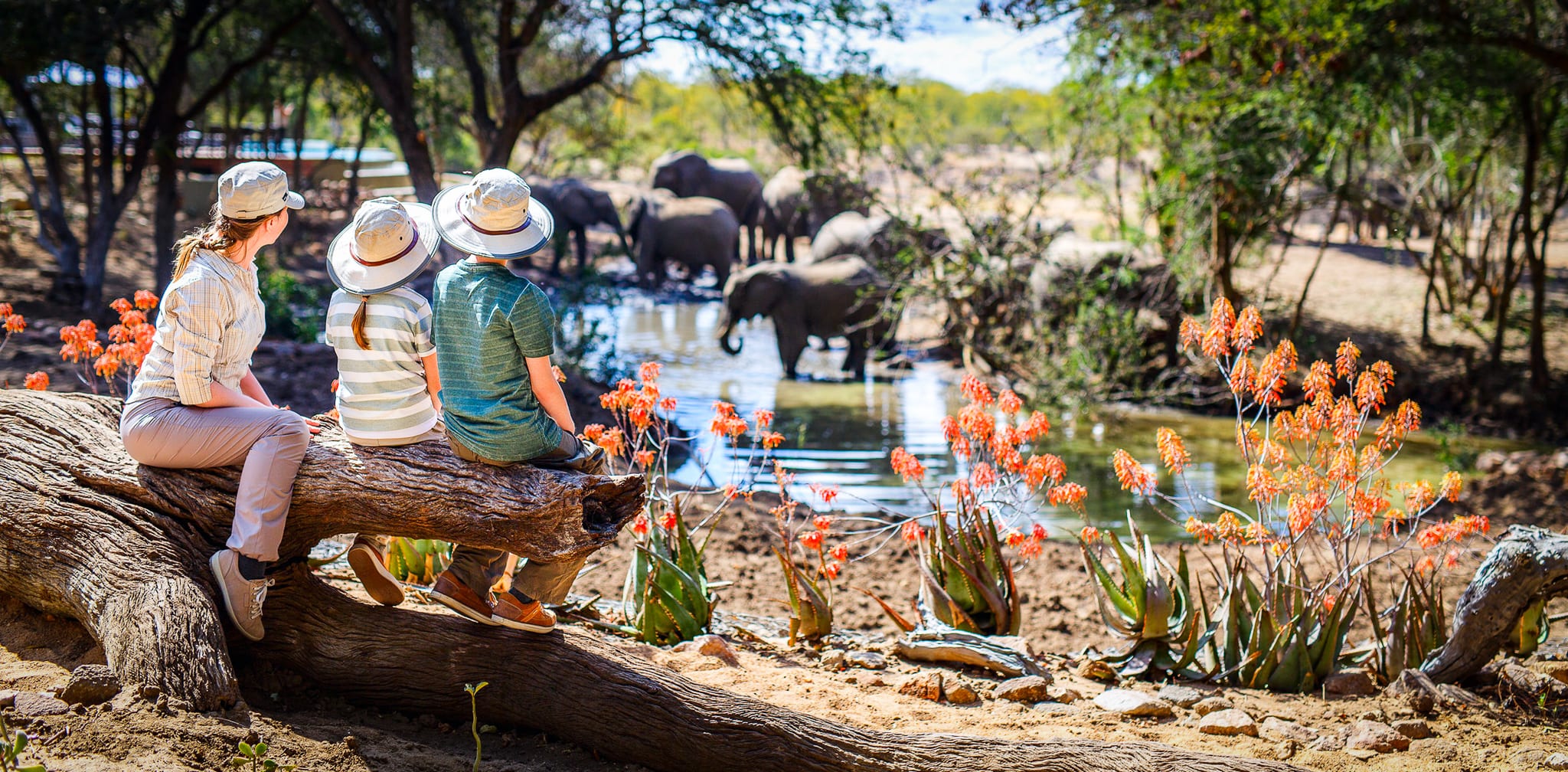
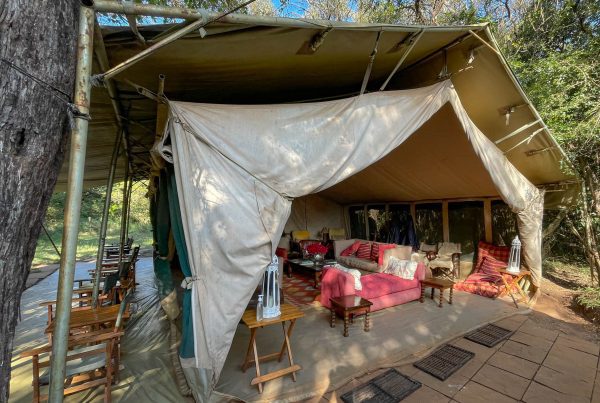
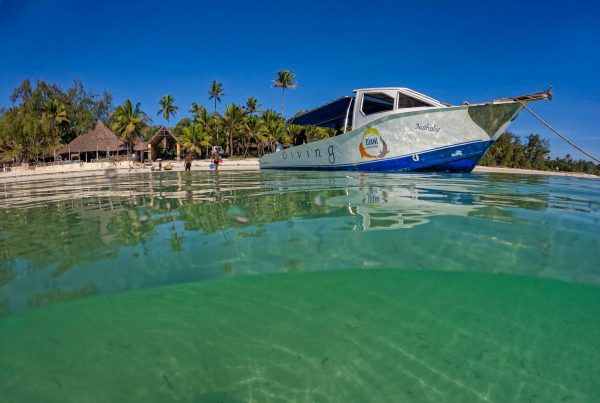
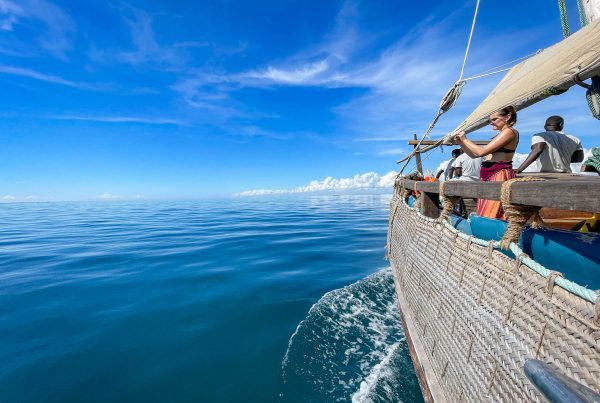
2 Comments